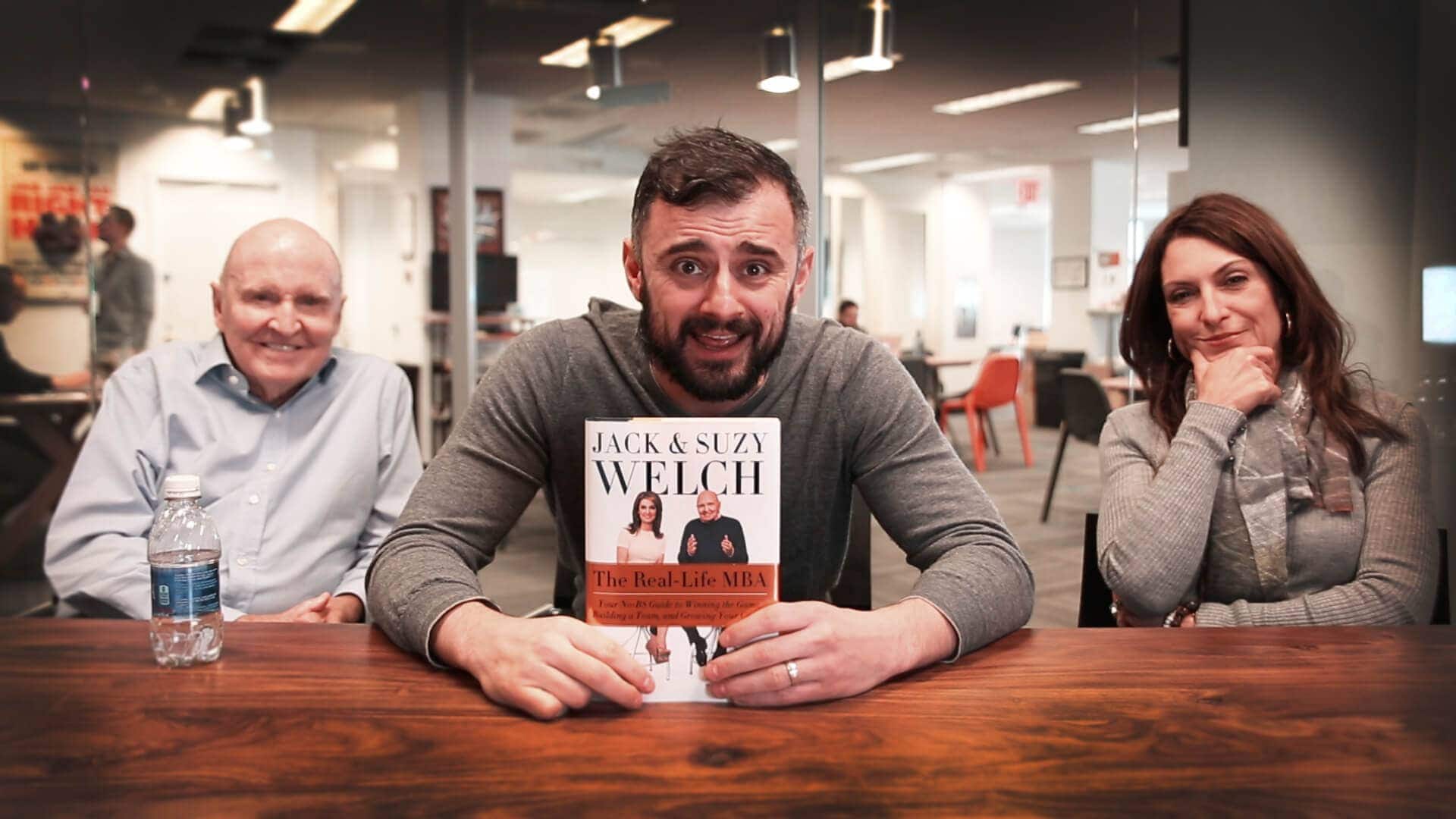#QOTD, from Suzy Welch: In our book we make the case that the place you should be working is something we call your “area of destiny.” It’s the intersection of what you’re uniquely good at and what you love to do. How many of you feel that you are currently working in your area of destiny?
#TIMESTAMPS
2:29 – How important is failure. You hear a bunch of people saying how important it is to fail. But is it really?
5:08 – Is terminating the bottom 10% still a good idea? Even on a team of all-stars, someone has to be last.
8:19 – As a business grows, what is best solution for documenting policy, procedure and process so all are on same page?
11:05 – What is the best way to scale a business with an inherently low profit margin?
13:58 – How can efficiency and creativity better work together?
17:33 – Jack and Suzy talk about their new book, “The Real-Life MBA”.
#LINKS
Jack and Suzy Welch’s “The Real-Life MBA” (all proceeds go to charity): https://www.amazon.com/The-Real-Life-M…
Jack Welch on Twitter: https://twitter.com/jack_welch
Suzy Welch on Twitter: https://twitter.com/SuzyWelch
How important is failure? The failure has to be quantified. If you fail and then can never get up from it again, that’s not a good kind of failure. Failure and adversity are the two things I think about. For me, as an entrepreneur, all my failures along the way have been a lesson. I’m even thinking back to when I attended my first baseball card trade show. I bought a table at 13 for $400 and nobody showed up. That was a lesson. Those micro failures were super super important. But it also depends on your stomach. If you really go out of business, people can go one of two ways. Either they’re just finished and they’re never able to get off the mat, or they go in a different direction. So to me, quantifying the failure is important.












31080 783862It can be difficult to write about this subject. I think you did a terrific job though! Thanks for this! 588494
290604 21104Yay google is my world beater aided me to discover this outstanding web web site ! . 21529
407210 341993I love reading through and I believe this site got some genuinely utilitarian stuff on it! . 313115
657914 130135Music started playing anytime I opened this web web site, so annoying! 134234
613180 580607Hey there, Can I copy this post image and implement it on my personal internet log? 569463
982916 296368Naturally I like your web-site, nevertheless you need to check the spelling on several of your posts. Numerous of them are rife with spelling issues and I locate it very silly to inform you. On the other hand I will surely come once again once more! 405037
495641 821182Precisely what I was seeking for, thankyou for putting up. 415887
Với kinh nghiệm dày dặn trong cá cược esports, Rbviet.net Rbesports mang đến nền tảng hiện đại, giao dịch siêu tốc, bảo mật tuyệt đối và dịch vụ hỗ trợ tận tâm. – 2025 March 19, 21:22
Cam kết minh bạch và an toàn, Rbviet.net Rbesports hợp tác cùng các giải đấu esports lớn, đảm bảo hệ thống cá cược công bằng và giao dịch chính xác, nhanh chóng. – 2025 March 27, 14:06
Tham gia Rayesports.com Rayesports để trải nghiệm cá cược esports đẳng cấp, giao dịch minh bạch, hỗ trợ 24/7 và cam kết mang đến sự công bằng, tiện lợi cho người chơi. – 2025 April 02, 11:47
Rbviet.net Rbviet – Điểm đến lý tưởng cho cá cược thể thao điện tử, đảm bảo bảo mật cao, giao dịch nhanh và trải nghiệm đặt cược mượt mà trên mọi tựa game đình đám. – 2025 April 09, 17:49